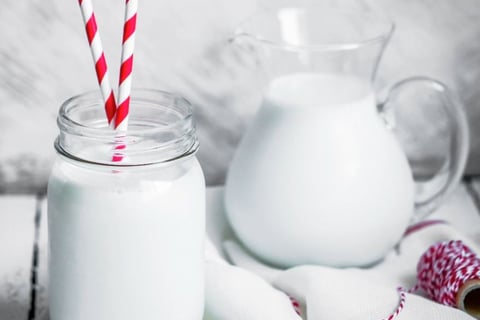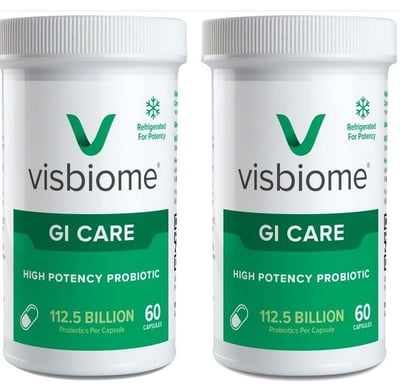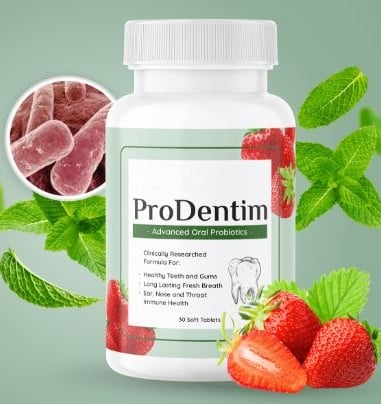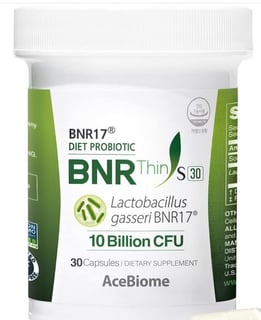The Positive Impact of Beneficial Bacteria on Human Health
Discover how beneficial bacteria, often overlooked, play a crucial role in maintaining optimal human health. Learn about their positive impact on digestion, immunity, and overall well-being.
10/16/20246 min read


Understanding Beneficial Bacteria
Beneficial bacteria, commonly referred to as probiotics, play a crucial role in maintaining human health. These microorganisms are naturally present in the human body, particularly within the gut, where they contribute to various biological processes. In a healthy microbiome, a diverse array of beneficial bacteria exists, which is essential for optimal digestion, immune support, and overall well-being.
There are several types of beneficial bacteria, including Lactobacillus, Bifidobacterium, and Saccharomyces. Each of these strains serves unique functions but collectively supports the gut's functionality. For instance, Lactobacillus is known for helping break down lactose, which can be particularly advantageous for individuals who are lactose intolerant. Bifidobacterium, on the other hand, plays a significant role in fermenting dietary fibers, which produce short-chain fatty acids beneficial for gut health and metabolism.
Research indicates that the presence of these bacteria is linked to several positive health outcomes. Probiotics are scientifically demonstrated to aid in digestion by enhancing the breakdown of food and facilitating nutrient absorption. Additionally, they bolster immune function by competing with pathogenic bacteria, thereby reducing the likelihood of infections. Recent studies have also suggested a connection between a balanced microbiome populated with beneficial bacteria and mental health, illustrating how gut health can impact mood and cognitive functions.
Probiotics can be naturally found in various foods, including yogurt, kefir, sauerkraut, and kimchi. Incorporating these foods into one’s diet can help ensure the presence of beneficial bacteria, promoting a balanced microbiome. In summary, beneficial bacteria, or probiotics, significantly impact human health through their role in digestion, immune function, and overall physiological well-being, underscoring the importance of maintaining a balanced microbiota. With ongoing research, our understanding of their contributions continues to grow, revealing new dimensions of their influence on health.
Health Benefits of Bacteria
Bacteria play a crucial role in maintaining human health, with their beneficial strains significantly contributing to various physiological processes. One of the primary benefits of beneficial bacteria is their involvement in digestion. The human gastrointestinal tract is home to trillions of bacteria, many of which help break down complex food particles. This process enables the body to extract essential nutrients and energy from the foods consumed, thus supporting overall health. For instance, probiotics, which are live beneficial bacteria, can enhance the breakdown of lactose in dairy products, assisting those with lactose intolerance in digesting these sources more effectively.
Good bacteria in your gut help make important vitamins, like some B vitamins and vitamin K, which your body needs for energy and blood clotting. These bacteria also help your body absorb minerals like calcium and magnesium, which are essential for strong bones. Studies show that having a healthy balance of gut bacteria can improve how well your body absorbs nutrients, leading to better overall health.
In addition to aiding digestion, beneficial bacteria have a significant impact on the immune system. They contribute to the body's defenses by outcompeting harmful pathogens for resources in the gut, thereby reducing the risk of infections. Certain probiotic strains have been found to enhance the production of antibodies and promote the activity of immune cells, bolstering the body’s ability to fight off diseases. Notably, studies have indicated that probiotics can reduce the incidence of respiratory infections and gastrointestinal disorders.
Interestingly, the benefits of beneficial bacteria extend beyond physical health, as they also play a role in mental health through the gut-brain connection. Emerging research highlights the relationship between gut microbiota and mood regulation, suggesting that individuals with healthier gut bacteria profiles may experience lower levels of anxiety and depression. Through the production of neurotransmitters and short-chain fatty acids, beneficial bacteria can influence brain function and emotional health, showcasing their multifaceted contributions to well-being.
Incorporating Beneficial Bacteria into Your Diet
One of the most effective ways to improve your health is by incorporating beneficial bacteria into your diet. These microorganisms play a vital role in maintaining a healthy gut, which is integral to overall wellness. A prime source of probiotics is fermented foods, which are rich in these helpful bacteria. Among the most recognized options is yogurt, which contains live cultures like Lactobacillus and Bifidobacterium. For a tangy alternative, kefir offers a diverse array of probiotic strains and a drinkable option that is easy to include in daily routines.
Another excellent source of probiotics includes fermented vegetables, such as sauerkraut and kimchi. These foods not only provide beneficial bacteria but also enhance the flavor and nutrition of meals. Adding a few spoonfuls of sauerkraut to a sandwich or including kimchi in a stir-fry can be an effortless way to boost your probiotic intake.
Moreover, one should not overlook the significance of prebiotics, which are non-digestible fibers that nourish probiotics. To effectively incorporate prebiotics into your diet, consider fruits like bananas, apples, and berries, as well as vegetables such as garlic, onions, and asparagus. Whole grains also serve as excellent sources of prebiotic fibers and can help foster a robust environment for beneficial bacteria.
In addition to natural food sources, probiotic supplements are available for those who may need extra support. When selecting a supplement, it is prudent to consider the strains included, as well as their CFU count (colony-forming units). Different strains serve various functions, thus making it essential to choose a product that meets individual health needs and aligns with dietary goals. By thoughtfully incorporating both probiotics and prebiotics, one can effectively enhance their microbiome health and overall well-being.
Tips for Optimizing Bacterial Health
Maintaining a healthy community of beneficial bacteria within the body is essential for overall well-being. Implementing specific lifestyle choices can significantly enhance the growth and maintenance of these microorganisms. One of the most impactful factors is diet. A balanced diet rich in prebiotics and probiotics can promote the proliferation of good bacteria. Foods such as yogurt, kefir, sauerkraut, and high-fiber fruits and vegetables nourish beneficial bacteria, allowing them to flourish and provide their myriad health benefits.
Managing stress is another critical aspect of fostering a thriving microbiome. Chronic stress can adversely affect the gut bacteria balance, leading to dysbiosis and various health issues. Engaging in mindfulness practices, meditation, or yoga can help mitigate stress and support a healthy gut environment. Maintaining adequate hydration is vital for bacterial health; water supports digestion, nutrient absorption, and the overall functioning of the gastrointestinal system, facilitating the activities of beneficial bacteria.
It is also important to avoid antibiotic use, if possible. While antibiotics are essential for treating bacterial infections, they can disrupt the balance of good bacteria in the gut. Limiting antibiotic use whenever possible helps preserve the gut microbiome, allowing beneficial bacteria to thrive. Using antibiotics all the time also builds up you body's tolerance to them. We want to reserve using antibiotics only when it is necessary, and as a last resort. Regular physical activity also contributes positively to microbial diversity. Exercise has been shown to enhance the gut microbiome, leading to a more stable and diverse bacterial community.
Lastly, prioritizing quality sleep plays a pivotal role in overall health, including the health of gut bacteria. Sleep deprivation can negatively affect the composition of the microbiome, hence establishing a consistent sleep routine can prove beneficial. Incorporating these strategies into daily life empowers individuals to foster an environment that supports beneficial bacteria, ultimately enhancing their overall health and well-being.
Whether through food or supplements, giving your gut some extra support with probiotics could be worth exploring. Remember, it’s always a good idea to talk to a healthcare provider to figure out what’s best for you.


Stress also affects our gut. Image by Hamed Mehrnik


Kefir or yoghurt is a delicious way of incorporating probiotics in our gut.
Our guts are naturally home to countless bacteria, fungi, and viruses. Credit: Neuroscience News
Visbiome® GI Care - High Potency Probiotic - 112.5 Billion CFU Live Probiotics
Prodentim probiotics for healthy gums and teeth
BNRThin S30, Lactobacillus Gasseri BNR17, 10 Billion CFU
Bodymindbeing
Your guide to a fulfilling life.
Contact Us
support@bodymindbeing.me
© 2024. All rights reserved.






